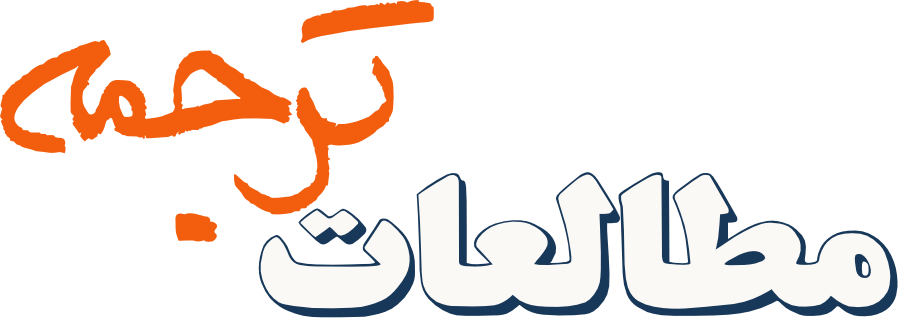شکلگیری میدان ترجمۀ نمایشنامه در دورۀ پهلوی اول (1304–1320)
چکیده
پژوهش حاضر روند تدریجی شکلگیری میدان ترجمۀ نمایشنامه را با استفاده از چارچوب نظری بوردیو در بافت ایرانی بررسی میکند. با استفاده از این چارچوب نظری ارتباط میان میدان تولید ترجمۀ نمایشنامه و عاملان اجتماعیاش در دورۀ پهلوی اول (1304–1320) مورد مطالعه قرار میگیرد، زیرا که پی بردن به مراحل شکلگیری آن به درک برخی از عوامل اجتماعی-فرهنگی و عملکرد عاملان وابسته است. مطالعۀ حاضر برای بررسی تأثیر این عوامل بر عملکرد عاملان در سطح ساختار کلان صورت گرفته است. یافتهها براساس مفاهیم اساسی بوردیو نظیر میدان، عادتواره و سرمایه مورد تحلیل قرار گرفت و به نقش عاملان اجتماعی تأثیرگذاری که بهطور چشمگیری در ساختاربندی این میدان و مرزهایش مشارکت داشتهاند نیز پرداخته شد. نتیجهگیری مطالعه نشان میدهد که توسعۀ اجتماعی-فرهنگی در دورۀ پهلوی اول موجب تغییر شکل ساختار جامعۀ ایرانی شد. ایران شاهد رشد فزایندۀ فضاهای اجتماعی گوناگون و نیز ظهور عاملان فرهنگی جدید بود و به تبع آن، میدان ادبی شاهد شکلگیری میدان ترجمۀ نمایشنامه بهدنبال تلاشهای عاملانی بود که متعلق به دو میدان فعال و تأثیرگذار یعنی میدان قدرت و میدان تئاتر بودند. علاوهبراین، دو نوع عادتواره ترجمهای در ترجمۀ نمایشنامهها متداول شد: ترجمه برای چاپ و ترجمه برای صحنه که حاکی از وجود دو روش متفاوت ترجمه است: بیگانهسازی و بومیسازی.
کلمات راهنما:
عاملیت, میدان, میدان ادبی, میدان تئاترمراجع
Abrahamian, E. (1982). Iran between two revolutions. New Jersey: Princeton University Press. pp. 123–163.
Bourdieu, P. (1980). The field of cultural production. Cambridge: Polity Press.
Bourdieu, P. (1983). The Field of Cultural Production or: Economic World Revisited. Poetics, 12 (4/5), 311–356.
Bourdieu, P. (1986). The Forms of Capital (Parshly, Trans.). In: Richardson, J. (ed.), Handbook of theory and research for sociology of education. New York: Greenwood Press, pp. 46–56.
Bourdieu, P. (1990). In other words: Essays toward a reflexive sociology (Stanford, Trans.). Stanford: Stanford University Press.
Bourdieu, P. (1996). The rules of art: genesis and structure of literary field (S. Emanuel, Trans.). Cambridge: Polity Press.
Bourdieu, P. (1999). Practical reason. Stanford: Stanford University Press.
Bourdieu, P. (2000). Making Economic Habitus: Algerian Workers Revisited (R. Nice & L. Wacquant, Trans.). Sage Journals 1(1), 17–41.
Bourdieu, P., & Wacquant, L. (1992). An invitation to reflexive sociology. Chicago: University of Chicago Press.
Buzelin, H. (2005). How Latour's Network Theory Could Complement Bourdieusian Analyses in Translation Studies. The Translator, 11(2), 193–218.
Chesterman, A. (2006). Questions in Sociology of Translation. In: Duarte, J., Rosa, A. & Seruya, T. (Eds.), Translation studies at interface of disciplines. Amsterdam: Benjamins, 9–27.
Emami, K. (1993). Ups and downs of translation. Tehran: Nilufar.
Even-Zohar, I. (1978). Papers in Historical Poetics. In Hrushovski B. & Even-Zohar I. (eds.), Papers on poetics and semiotics. Tel Aviv: University Publishing Projects.
Grenfell, M. (2008). Pierre Bourdieu: Key concepts. Stocksfield Hall: Acumen Publishing Limited.
Guran, H. (1981). Unaccomplished attempts. Tehran: Agha Publication.
Hermans, T. (1997). Crosscultural transgressions: Research models in translation studies. Manchester: St. Jerome.
Inghilleri, M. (2005). Special Issue on Bourdieu and Sociology of Translation and Interpreting. The Translator, 11(2).
Jenkins, R. (1992). Pierre Bourdieu. London: Routledge.
Katouzian, H. (2006). State and society in Iran: The eclipse of Qajars and emergence of Pahlavis I.B.
Malekpur, J. (1984). Dramatic literature in Iran, Vol.1/2/3. Tehran: Tous.
Oskoui, M. (1999). Cross over history of Iran theatre. Tehran: Oskui Press.
Toury, G. (1995). Descriptive translation studies and beyond. Amsterdam” John Benjamins.
Wolf, M. (2002). Translation Activity Between Culture, Society and the Individual: Towards a Sociology of Translation. CTIS Occasional Papers, 2, 33–43.
Wolf, M. (2006). The Female State of Art: Women in ‘Translation Field. In: Pym, A., Shlesinger, M. & Jettmarová, Z. (eds.). Sociocultural aspects of translating and interpreting. Amsterdam & Philadelphia: Benjamins.
Wolf, M. (2007). The Location of "Translation Field". Negotiating Borderlines Between Pierre Bourdieu and Homi Bhabha. In: Wolf & Fukari, A. (eds.), Constructing a sociology of translation. Amsterdam: Benjamins.
Downloads
چاپشده
ارجاع به مقاله
شماره
نوع مقاله
DOR
مجوز
Copyright Licensee: Iranian Journal of Translation Studies. This article is an open access article distributed under the terms and conditions of the Creative Commons Attribution–NonCommercial 4.0 International (CC BY-NC 4.0 license).





